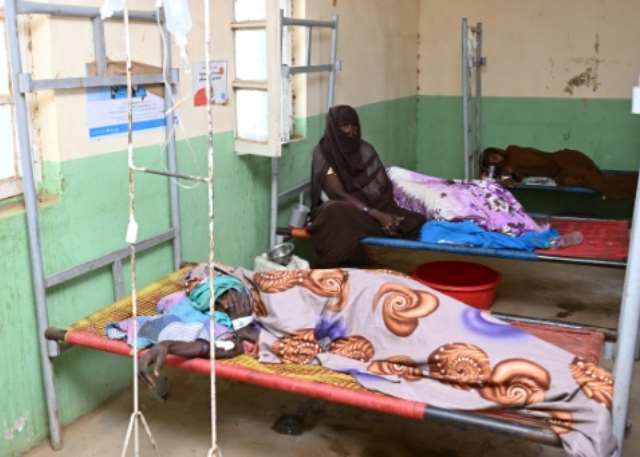Dozens of people have died, and over 800 are being treated for symptoms of acute watery diarrhoea, dehydration, vomiting, and sunken eyes at the Ministry of Health cholera treatment centre in Kosti Teaching Hospital supported by Doctors Without Borders/Médecins Sans Frontières (MSF), in Sudan’s White Nile State.
The outbreak in White Nile state followed a reported drone strike on the Um Dabakar power station – 275 kilometres (170 miles) south of the capital Khartoum – which disrupted access to clean water in the city of Kosti.
Sudanese health officials said Thursday that over 400 cases of cholera had been detected in the city.
The surge in cases was attributed to a “shortage of water due to power outages,” the health ministry in White Nile state said in a statement.

It comes with Sudan’s healthcare system crippled by the country’s brutal civil war which has killed tens of thousands and displaced more than 12 million people.
Officials have since banned the practice and urged stronger chlorination of the water distribution system.
Most local restaurants and Kosti’s market have closed as a precaution.
The outbreak has overwhelmed the cholera treatment centre at Kosti Teaching Hospital, the French-based charity said, with patients suffering from “acute diarrhoea, dehydration, vomiting, and sunken eyes”.

MSF, which has been supporting cholera care in the region since October, reported a sharp rise in admissions from Wednesday night, when 100 new patients arrived at the cholera treatment centre.
By Friday afternoon, the figure had swelled to more than 800. At least 24 people have died, including one patient who was dead on arrival. Forty-eight others have been discharged.
“The numbers continue to rise, and keeping a detailed tally has become difficult for the team,” MSF said.
Since April 2023, Sudan has been gripped by a conflict between army chief Abdel Fattah al-Burhan and Mohamed Hamdan Daglo, leader of the paramilitary Rapid Support Forces (RSF).




